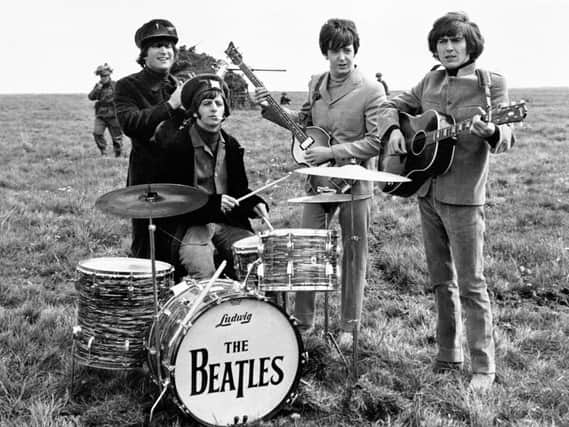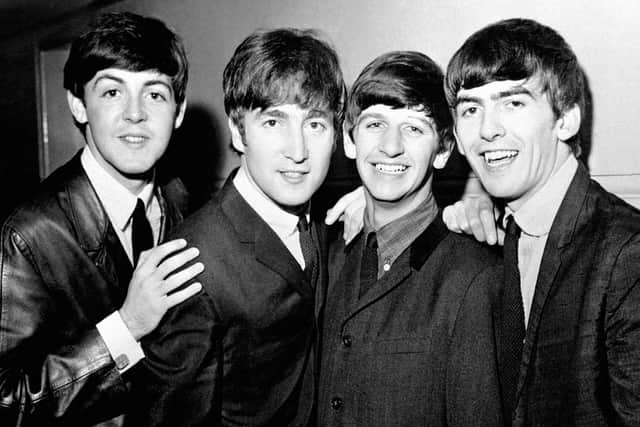It's 50 years since The Beatles split up - but what is their legacy?


On April 10, 1970, Paul McCartney issued a press release with advance copies of his solo album, which seemed to announce the Beatles’ demise.
Framed as the transcript to a Q&A, he confirmed that he did not miss his bandmates, that he was not planning anything with them, and that he could not foresee writing any future songs with John Lennon. When asked if he enjoyed solo work, he said: “I only had me to ask for a decision, and I agreed with me.”
Advertisement
Hide AdAdvertisement
Hide AdLennon responded furiously, but his words seemed to confirm those of his bandmate. “He can’t have his own way, so he’s causing chaos. I put out four albums last year, and I didn’t say a f***ing word about quitting.” In reality, though, he had privately departed months before.


Many observers point to the tragic death of longtime manager Brian Epstein in 1967 as marking the beginning of the end.
He not only handled the group’s business dealings, keeping the decisions – and the disagreements – separate from the music, he had also deftly mediated the band’s burgeoning ego and was the glue that kept them together. Without him they eventually became unstuck.
The White Album in 1968 was a successful but bizarre blend of styles, later described by Rolling Stone magazine as “four solo albums under one roof”.
Advertisement
Hide AdAdvertisement
Hide AdThe arrival of Yoko Ono added to the tensions. She has often, unfairly, been painted as the villain of the piece, driving a wedge between Lennon and his bandmates, when the reality was that they were already moving in different directions.
However, if there was rancour at their split, they left behind a sublime body of work – producing 12 studio albums in the space of just seven years.
Simon Warner, Visiting Research Fellow in Popular Music at the University of Leeds, believes The Beatles’ impact on pop music culture is unrivalled.
“The Beatles came to represent this extraordinary decade of the 60s and when they decided to go their separate ways it was, in some ways, the end of that 60s dream.
Advertisement
Hide AdAdvertisement
Hide Ad“Their importance in relation to popular music of the 20th century cannot be overstated. They were by some way the most important, and influential, band and left the deepest mark.
“There were other groups led by people like Louis Armstrong and Miles Davis who featured earlier, but while they were deeply significant in terms of shaping the sound of the 20th century, in terms of global impact The Beatles were the most important.”
Warner, author of Texts and Drugs and Rock ‘N’ Roll, believes the band are still relevant today, even in a world characterised by downloading sites like Spotify.
“I think young listeners today are still conscious of who The Beatles are, or were, and they know their songs in a way that they might not know those of say Elvis Presley or Bob Dylan.
Advertisement
Hide AdAdvertisement
Hide Ad“Even children will know Yellow Submarine, which has become a kind of contemporary folk song, and young listeners warm to the sound of The Beatles in a way they perhaps don’t warm to say The Rolling Stones.
“So I think their legacy is stronger and deeper than any other musical artist of the 20th century, and I expect people will still be listening to their music a 100 years from now.”
Editor’s note: first and foremost - and rarely have I written down these words with more sincerity - I hope this finds you well.
Almost certainly you are here because you value the quality and the integrity of the journalism produced by The Yorkshire Post’s journalists - almost all of which live alongside you in Yorkshire, spending the wages they earn with Yorkshire businesses - who last year took this title to the industry watchdog’s Most Trusted Newspaper in Britain accolade.
Advertisement
Hide AdAdvertisement
Hide AdAnd that is why I must make an urgent request of you: as advertising revenue declines, your support becomes evermore crucial to the maintenance of the journalistic standards expected of The Yorkshire Post. If you can, safely, please buy a paper or take up a subscription. We want to continue to make you proud of Yorkshire’s National Newspaper but we are going to need your help.
Postal subscription copies can be ordered by calling 0330 4030066 or by emailing [email protected]. Vouchers, to be exchanged at retail sales outlets - our newsagents need you, too - can be subscribed to by contacting subscriptions on 0330 1235950 or by visiting www.localsubsplus.co.uk where you should select The Yorkshire Post from the list of titles available.
If you want to help right now, download our tablet app from the App / Play Stores. Every contribution you make helps to provide this county with the best regional journalism in the country.
Sincerely. Thank you.
James Mitchinson
Editor
